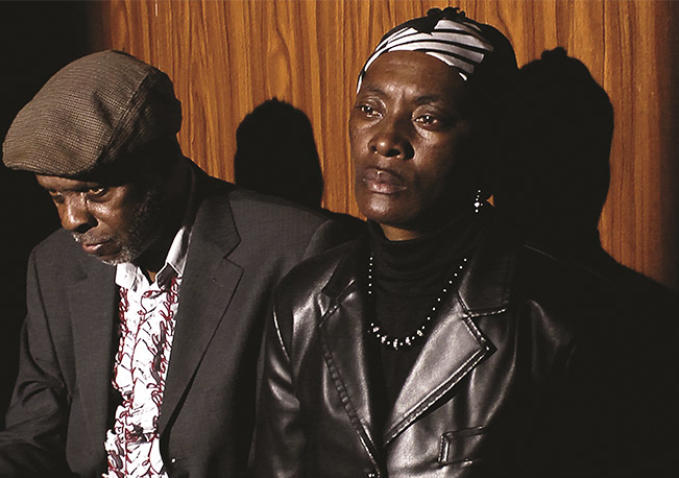A Pedro Costa film is not a fun night out at the cinema with a bucket of popcorn as big as your face – you’d probably choke. He makes films which challenge the audience. They’re definitely not suited for casual viewing, you need to surrender yourself to them. His work is often framed inside a poor Lisbon suburb, and in his latest offering Horse Money, he returns there again. We’re re-united with Ventura, who starred in his last film, Colossal Youth. Costa’s unique aesthetic again marries the glossy with the squalid, creating a world which is simultaneously grimly realistic and oddly fantastical.
Ventura is a poor 60 year-old Cape Verdean immigrant living in Lisbon. We join Ventura in hospital at the beginning of Horse Money. He recounts stories from his life, and the lives of those around him, often replaying scenes himself through over-stylised segments. The one recurring character in his visions is Vitalina (Vitalina Varela), a woman who has returned to the Portuguese capital in order to bury her husband.
As is Costa’s wont, the nature of what we’re seeing on screen is often clouded. Is this the afterlife, a dream, or more likely the garbled images born of mental frailty (or even dementia)? I can’t think of a living director with a better eye for a shot than Costa and Horse Money is his most accomplished work to-date. Ventura is racked with a melancholy and anxiety, not to mention a nerve disorder, which afflicts every tense scene. Horse Money is about the deprivations, brutality and torture (whether that be mental or physical) which so many face throughout the Developing and Third World. It’s an astounding work of cinema from both director and star.
Horse Money is out in cinemas on Friday.














No Comment